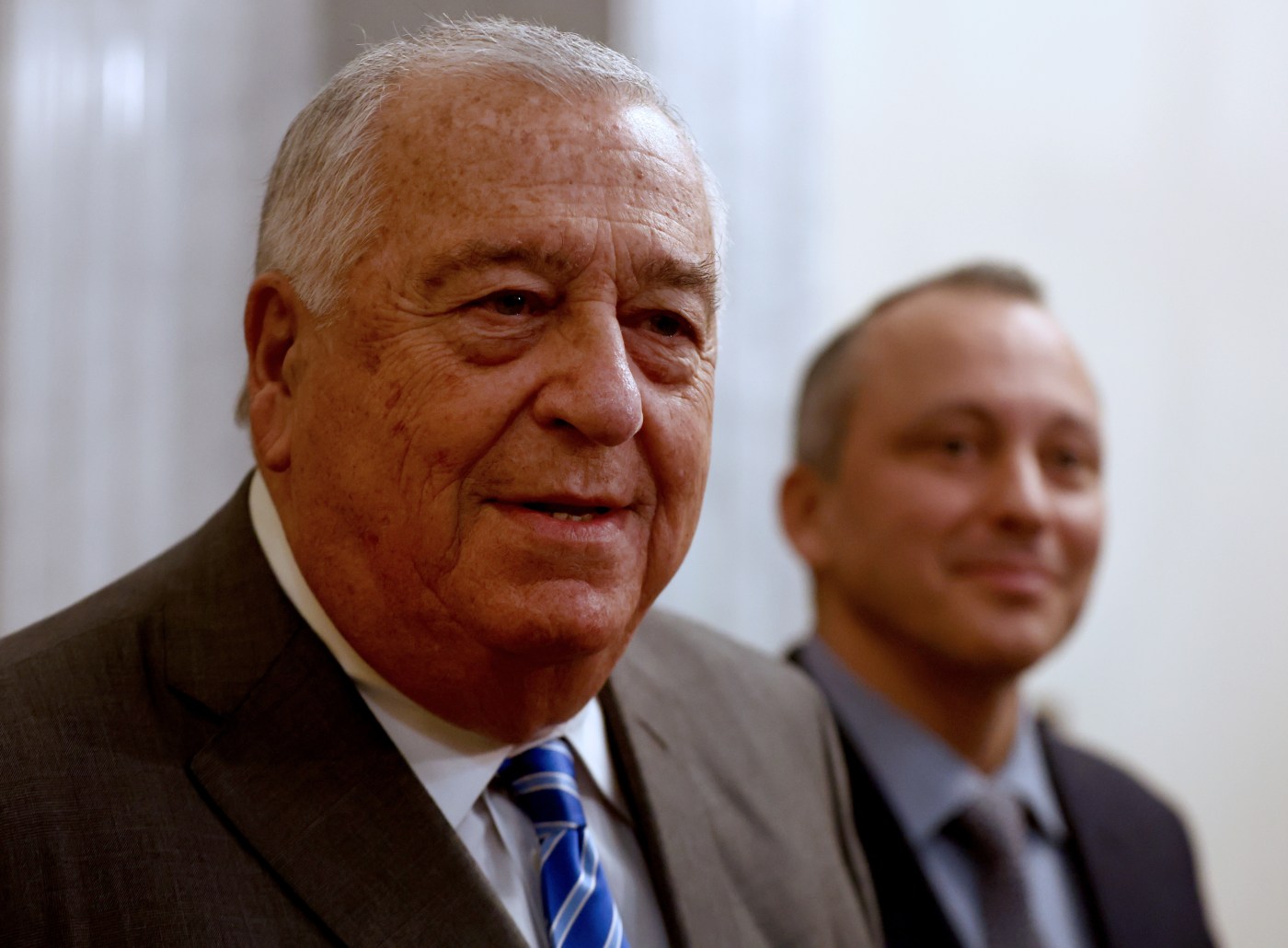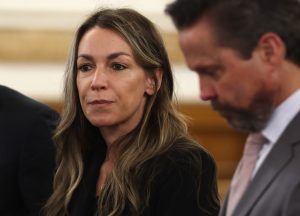
Mass. House Democrats roll out $61B state budget that ditches Gov. Healey’s tax policies
Massachusetts House Democrats released a $61 billion spending plan for fiscal year 2026 that does not include a series of tax increases Gov. Maura Healey proposed but still spikes spending 6.3% over last year’s state budget in the face of federal funding uncertainties.
Budget writers across state government have been grappling with the impacts of President Donald Trump’s efforts to reduce the size of the federal government and slash large amounts of cash that states like Massachusetts rely on to fund a range of programs and initiatives.
But the House’s chief budget writer, Rep. Aaron Michlewitz, said lawmakers cannot become “paralyzed by the situation that’s taking place in Washington.”
“We need to still be moving our budget forward, be aggressive in terms of our support for our constituents, and not get caught up in trying to keep blinders on, and build the best budget with the information that we have,” the North End Democrat said Wednesday morning. “But … if we have to move in a different direction, we will.”
The Bay State receives about $15 billion a year in federal dollars, cash that officials in the Healey administration, House, and Senate have said cannot be entirely replaced by state money if the Trump administration moves to cut significant portions.
Still, Michlewitz said the House’s budget does not include any contingency plans if more federal cash is taken off the table by the Trump administration.
“I’ve told everyone throughout this process — whether it’s members, advocates, agencies — that … just because we passed something in April, the Senate passes something in May, doesn’t mean we may not have to come back and reevaluate throughout the process here at different points in time based off of where this goes,” he said.
House Speaker Ron Mariano said Trump is wreaking “havoc” on critical programs that millions rely on, and the House budget includes a “significant increase” in funding for Attorney General Andrea Campbell’s office to take on the federal government.
The budget increase helps “ensure that Attorney General Campbell can continue to push back against any unconstitutional actions taken by the Trump administration, as Trump continues to move ahead with sweeping cuts, despite the concerns that many of his own voters are raising about those cuts,” Mariano told reporters at the State House.
A spokesperson for Mariano said the House proposed increasing Campbell’s budget to $82.5 million, or $6.8 million more than Healey’s budget and $5.4 million above what the attorney general received in fiscal year 2025.
Mariano and his top deputies also eschewed a series of tax increases that Healey had worked into her spending plan, like applying the sales tax to candy, tobacco tax to synthetic nicotine, placing a cap on charitable donation deductions, and rolling out a series of pharmaceutical-related tax policies.
The Quincy Democrat said crafting a budget that does not raise taxes “under normal circumstances, that would be an impressive accomplishment.”
“But it’s especially impressive this year amid the economic uncertainty brought on by Trump’s reckless trade war and amid Trump calling for sweeping budget cuts,” he said.
Mariano and Michlewitz said cutting out the tax-related policies from the fiscal year 2026 budget helped reduce total spending by $580 million compared to Healey’s budget, with $471 million attributed just to ditching the tax proposals.
The $62 billion fiscal year 2026 budget that Healey rolled out in January boosted spending by nearly 7.4%.
House Democrats did agree with the governor on her proposal to eliminate renter-paid brokers’ fees, a shift for a chamber that originally did not back the idea when it surfaced in a multi-billion dollar housing bill last year.
Under the House’s plan, real estate brokers would be barred from charging a commission or other fee to a tenant or prospective tenant for finding an apartment to lease or rent if the tenant did not initiate contact with the broker.
Real estate brokers could only charge the fees if the tenant or prospective tenant initiated contact, received a disclosure from the broker, and agreed to all terms and conditions of the fee disclosure in writing.
“The fees are simply unfair. It’s an unfair cost for renters who do not contract a broker and therefore should not have that as a responsibility,” Mariano said.
Mariano and Michlewitz also said the House plans to reduce the amount of money for the emergency shelter system included in the state budget to $275 million for fiscal year 2026, a $50 million drop compared to the previous fiscal year and Healey’s proposal.
The two Democrats said they included less cash for shelters housing homeless families with children and pregnant women because of a series of restrictive policies Healey and the Legislature approved over the past year that have reduced the number of people in the system.
Michlewitz did not say whether he believed $275 million would cover expenses for all of fiscal year 2026, but said, “If we have to come back and reevaluate, we will.”
“For right now, we’re feeling that it’s trending that direction, and something that we feel confident with right now,” he said of the drop in shelter caseload.
The Healey administration has not yet said how much it expects to spend on the shelter system in fiscal year 2026, with officials saying in a report released earlier this month that they are still evaluating costs given the new policies.
Healey announced Wednesday that the number of families in the emergency shelter system was 5,168 — with 4,966 families in the state’s six-month program and 202 families in the 30-day program.
“We’ve taken decisive action to reduce the number of families in shelter and lower the cost of the system – and we’re getting results,” Healey said in a statement Wednesday.
This is a developing story…


